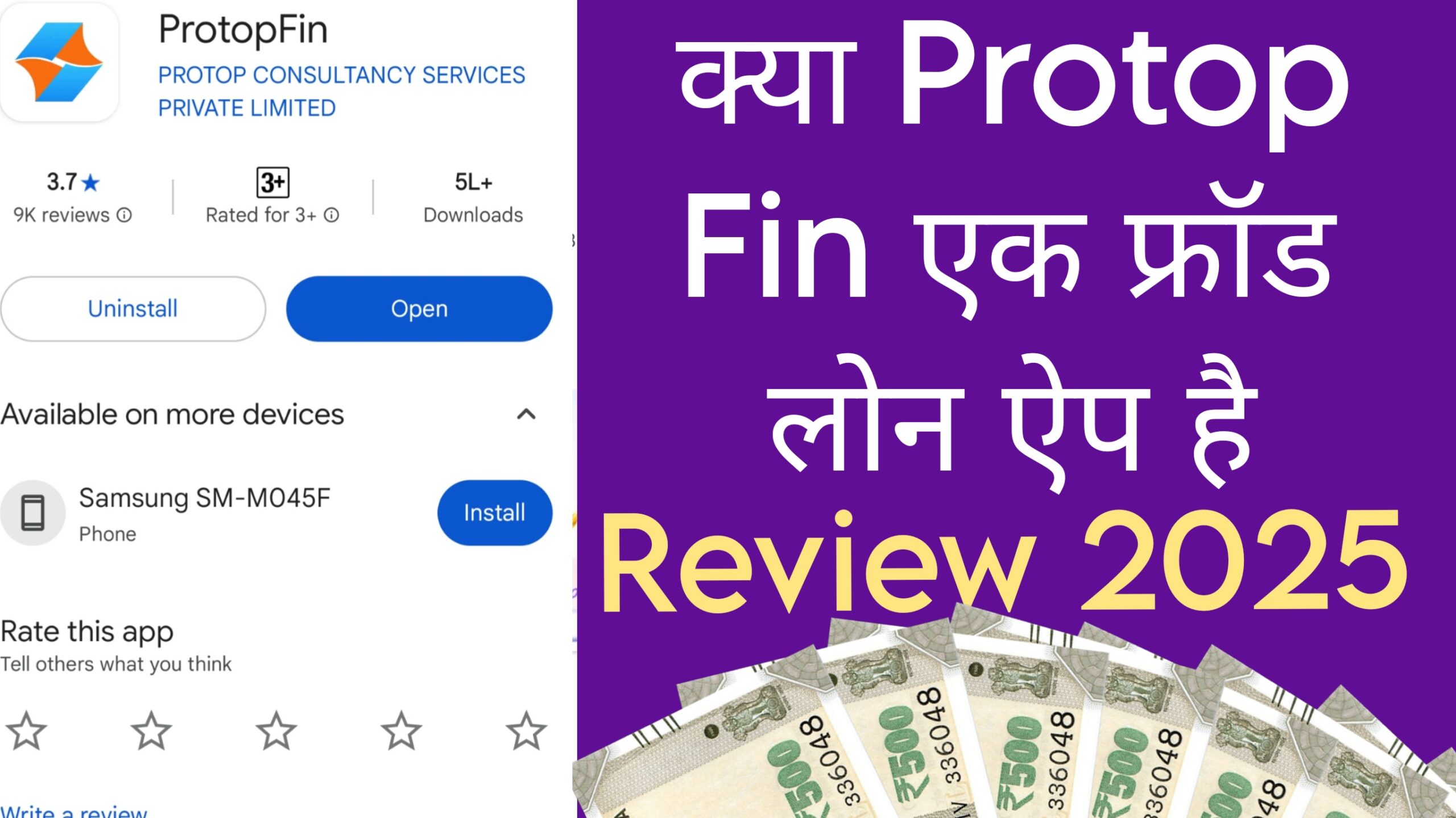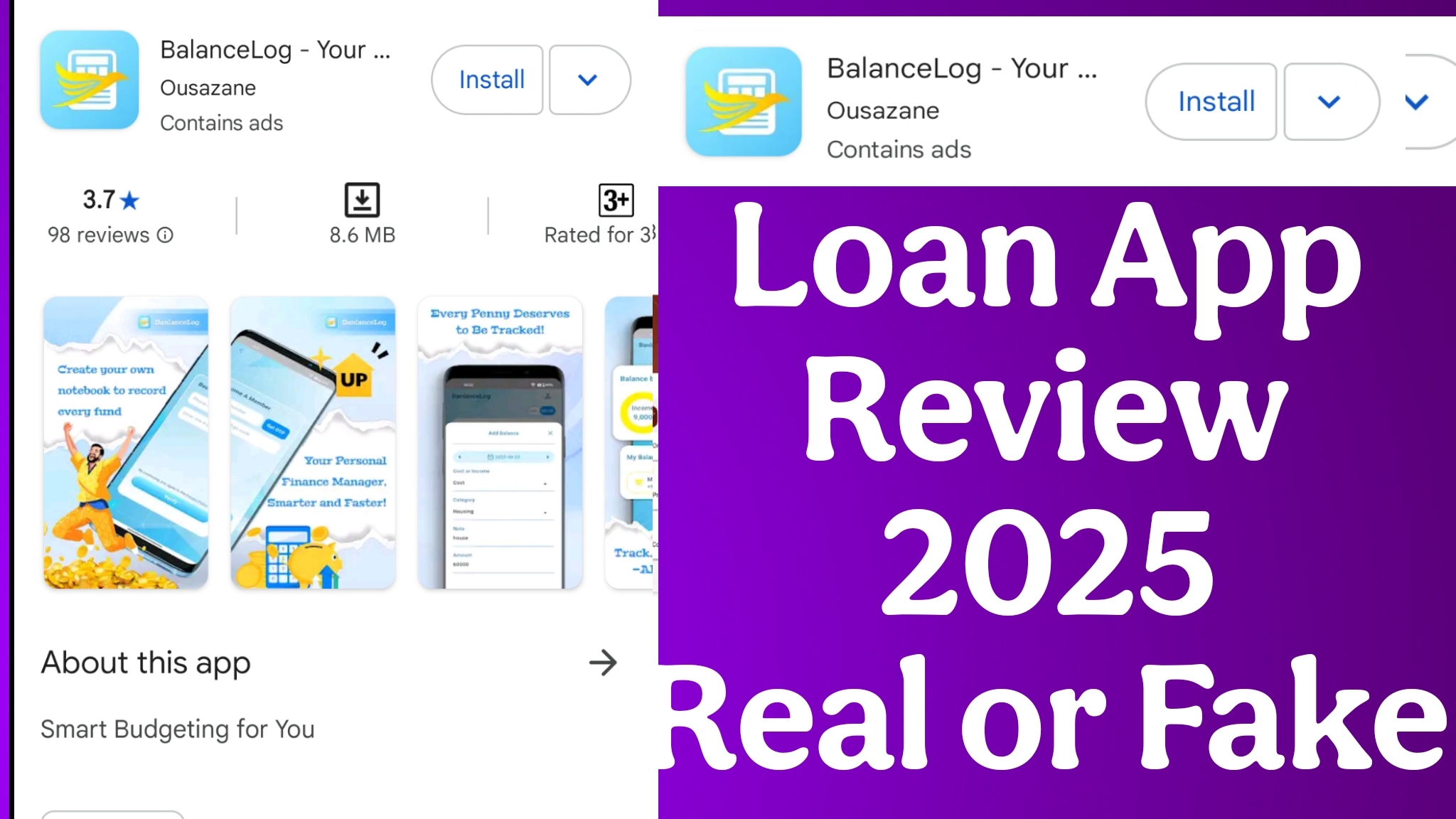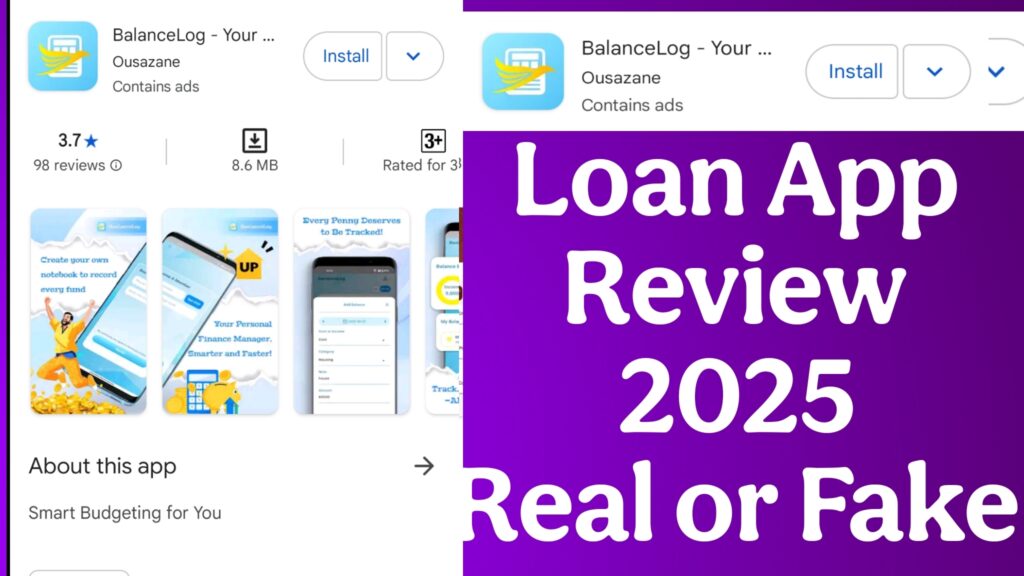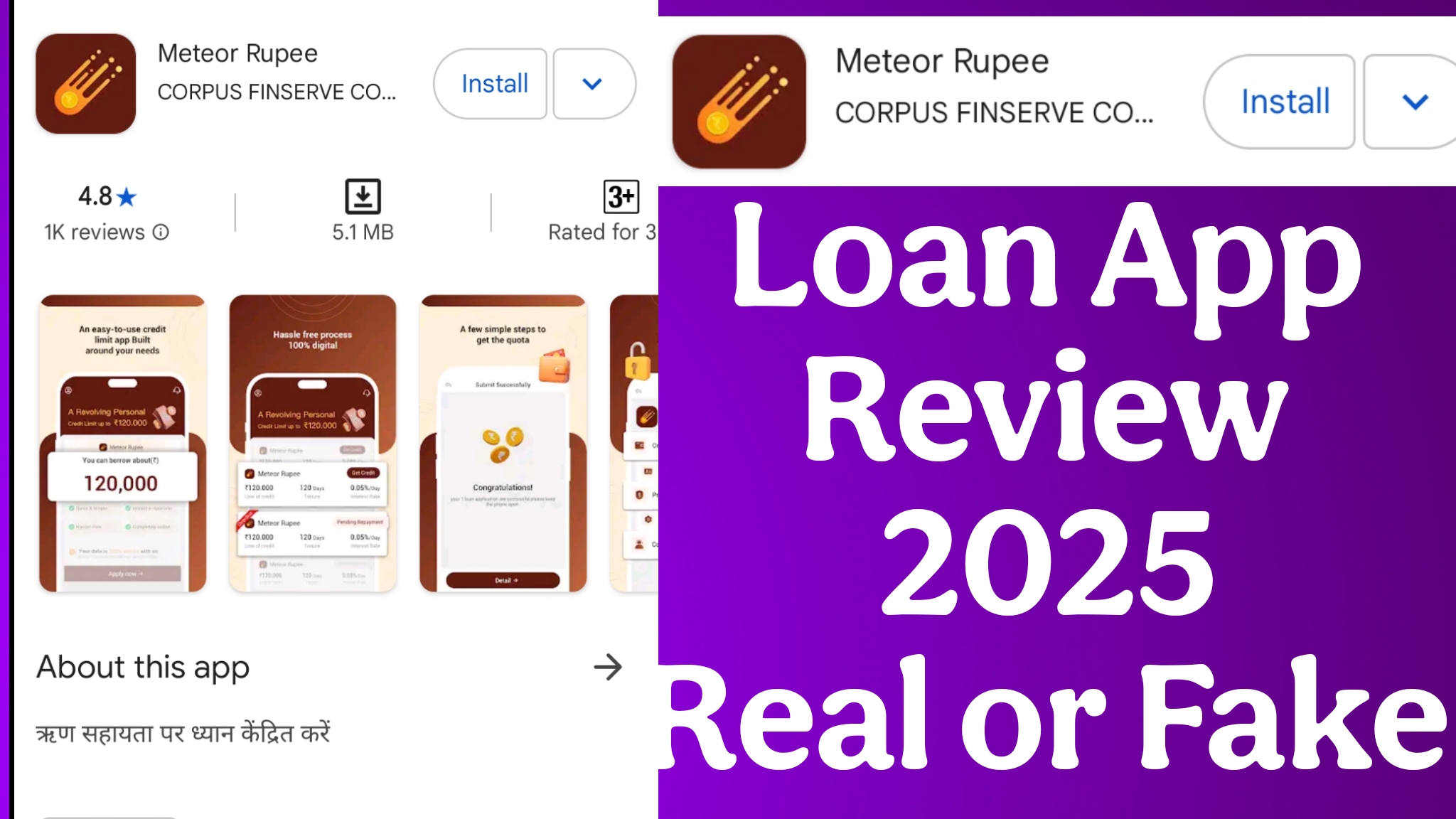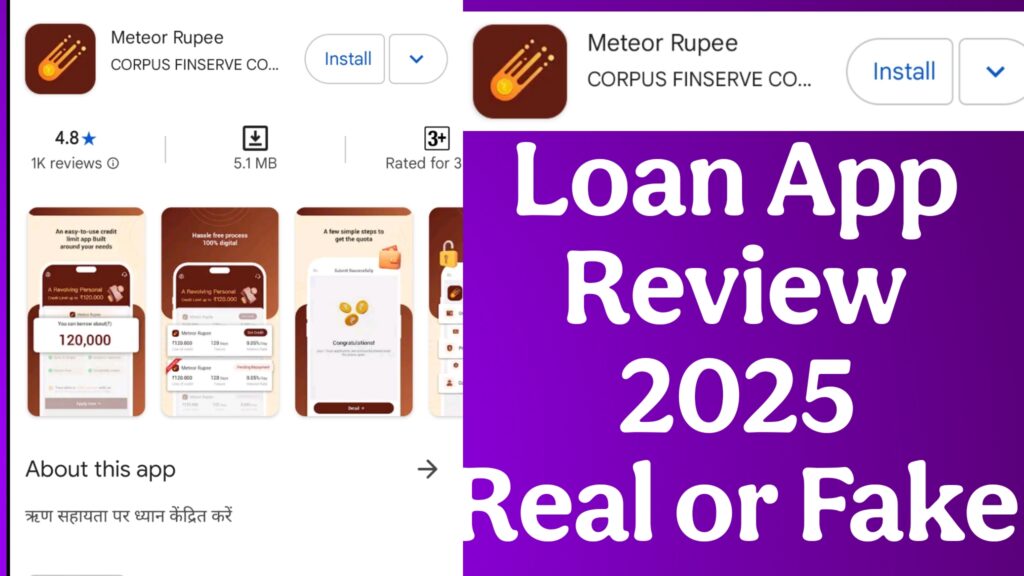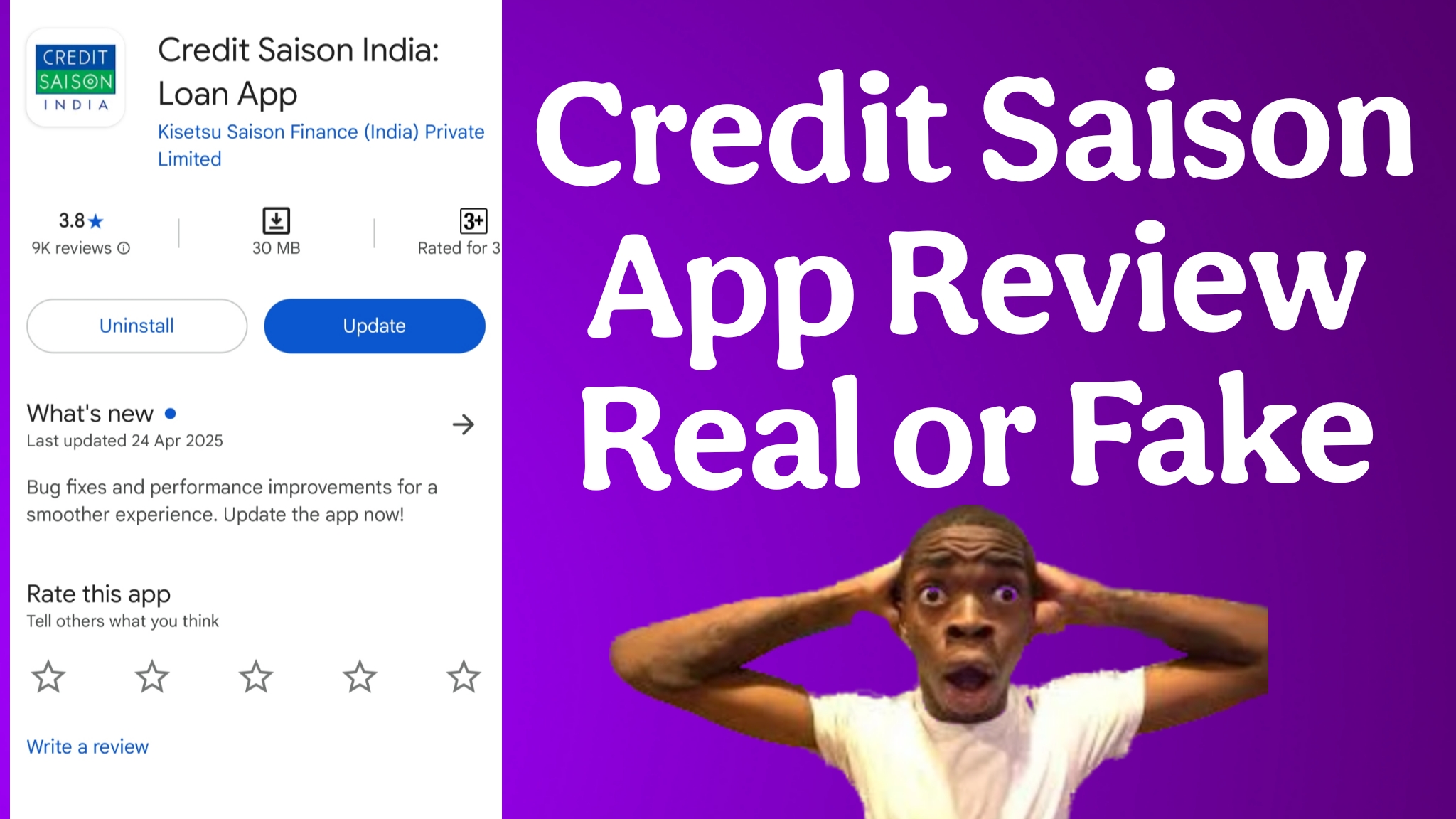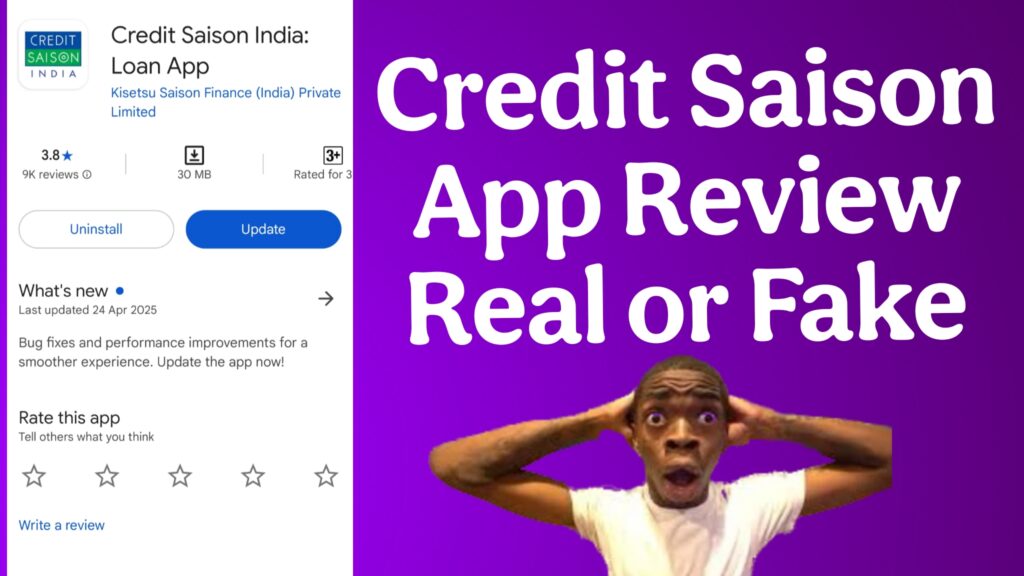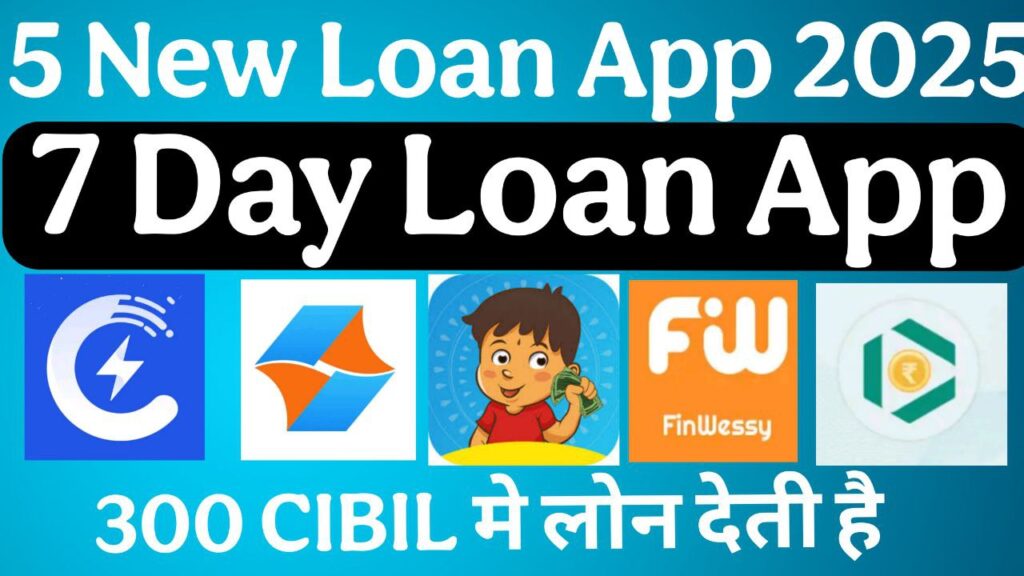ProtopFin Loan App Review 2025: High-Interest 7-Day Loans, Hidden Fees, and Customer Complaints
In the fast-paced world of digital lending, ProtopFin Loan App promises quick personal loans to meet urgent financial needs. Marketed as a seamless and transparent platform, it connects users to loans from JADS Services Private Limited, an RBI-registered NBFC. However, customer reviews paint a starkly different picture, raising red flags about high interest rates, hidden charges, and unethical practices. This comprehensive ProtopFin Loan App review dives into its features, loan details, customer feedback, and whether it’s a trustworthy option for borrowers in 2025.
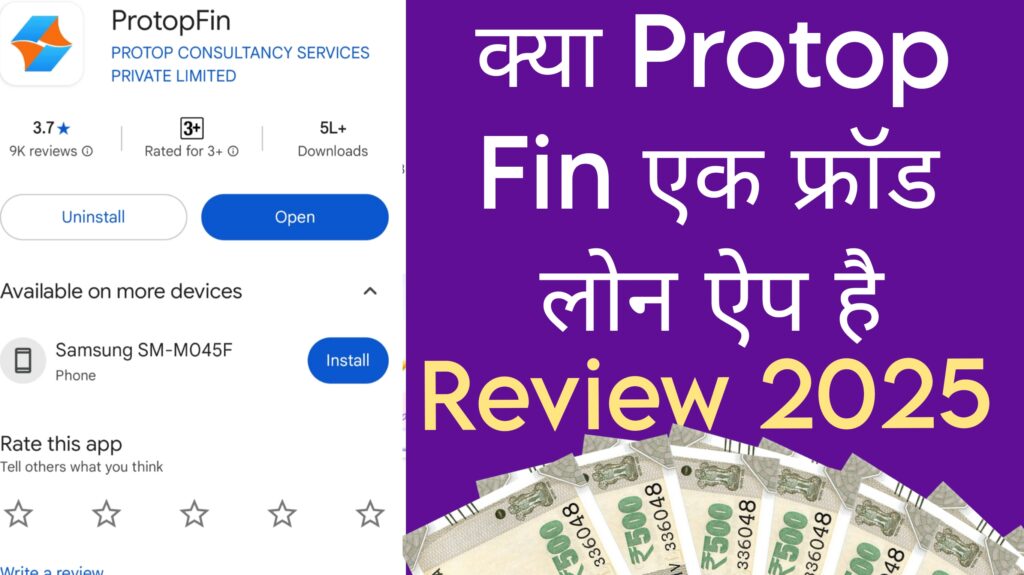
What is ProtopFin Loan App?
According to its Google Play Store description, ProtopFin is a loan facilitation platform developed by Protop Consultancy Services Private Limited. It acts as an intermediary, connecting users to personal loans provided by JADS Services Private Limited, a registered Non-Banking Financial Company (NBFC). The app claims to offer a quick, secure, and transparent loan process with flexible loan amounts and tenures.
Key Features from the Play Store Description
- Loan Amount: ₹2,000 to ₹60,000
- Loan Duration: 90 to 120 days
- Daily Interest Rate: 0.048%
- Processing Fee: 5%–6%
- Documentation Charges: 1% of the loan amount
- GST: 18% on processing fees, documentation charges, and convenience fees
- APR Range: 8.76% to 29.69%
- Loan Application Process:
- Submit personal details (name, phone number, email).
- Provide identity verification (PAN and Aadhaar cards).
- Share financial information (bank details, proof of income, employment status).
- Disbursement: Loans are processed and disbursed by JADS Services.
The app emphasizes a seamless loan process, data security, and transparent fees, making it seem like an attractive option for those needing instant funds. But do these claims hold up when we look at real user experiences?
ProtopFin Loan App: The Reality Behind the Promises
Despite its polished description, customer reviews reveal a troubling side to ProtopFin. Many users report high interest rates, hidden deductions, and aggressive recovery tactics. Let’s break down the concerns based on user feedback and analyze whether ProtopFin is a safe choice.
1. Exorbitant Interest Rates and Hidden Fees
The Play Store description claims a daily interest rate of 0.048% and an APR between 8.76% and 29.69%. However, customers like Mahindra Makhija report being charged up to 40% interest for a 7-day loan. For a loan of ₹1,200, only ₹760 was credited to his account due to upfront deductions, yet the repayment amount was significantly higher. This suggests that the actual cost of borrowing is much higher than advertised, with hidden fees not disclosed upfront.
Similarly, Hemant Mishra noted that the app processes small loan amounts (e.g., ₹1,000) instead of the promised ₹50,000–₹60,000, with 40% deductions and a 7-day repayment period. These discrepancies indicate a lack of transparency in the app’s fee structure.
2. Short-Term 7-Day Loans
While the Play Store description mentions loan tenures of 90 to 120 days, many users report being offered 7-day loans with hefty charges. This contradicts the app’s claims and aligns with the predatory practices of some digital lending apps, where short-term loans come with exorbitant costs, trapping borrowers in a cycle of debt.
3. Aggressive Recovery Tactics
One of the most alarming complaints comes from users like Mahindra Makhija, who described bullying by recovery agents. He claimed agents threatened to publicize his credit status to his contacts if he didn’t repay on time. Such tactics are not only unethical but may also violate RBI guidelines on fair lending practices.
4. Non-Delivery of Funds
Users like Moorthy Ponnusamy P and Dillion Francis reported not receiving loan amounts despite the app showing disbursal as successful. Moorthy called the app a “potential fraud,” alleging it demands repayments and late fees for funds never credited. This raises serious concerns about the app’s legitimacy and operational integrity.
5. Poor Customer Support
Multiple reviews, including Dillion Francis’s, highlight unreachable helplines, unresponsive email support, and a dysfunctional help center. This lack of customer service leaves borrowers stranded, especially when facing issues like non-disbursed loans or harassment by recovery agents.
6. Potential Fraud and Fake Ratings
With a 4.3-star rating and 50,000 downloads on the Play Store, ProtopFin may seem credible at first glance. However, users like Moorthy and Hemant suspect the ratings could be fake, a common tactic used by fraudulent loan apps to lure users. The pattern of negative reviews and complaints about fraud suggests that the app’s high rating may not reflect its actual performance.
ProtopFin Loan App: How It Works
Here’s a closer look at the loan application process based on the Play Store description and user experiences:
- Application: Users download the app, register, and provide personal, identity, and financial details.
- Eligibility Assessment: JADS Services evaluates the application based on the provided information.
- Disbursement: Approved loan amounts are credited to the user’s bank account, but users report significant deductions.
- Repayment: Borrowers must repay within the specified tenure, often as short as 7 days, with high interest and fees.
Example from Play Store
For a ₹30,000 loan over 90 days:
- Interest: ₹1,296 (₹30,000 × 0.048% × 90)
- Processing Fee: ₹1,500 (5%)
- Documentation Charges: ₹300 (1%)
- Convenience Fee: ₹200
- GST: ₹360 (18% on fees)
- Total Repayable: ₹33,656
However, user reviews suggest that for smaller loans (e.g., ₹1,000), the disbursed amount is heavily reduced, and repayment is demanded within a week, not 90 days.
Is ProtopFin Loan App Safe?
Based on customer feedback, ProtopFin raises several red flags:
- Hidden Fees: Deductions are not clearly disclosed before loan disbursal.
- High-Cost Short-Term Loans: 7-day loans with up to 40% interest are predatory.
- Unethical Recovery Practices: Threats and bullying by recovery agents violate fair lending norms.
- Potential Fraud: Non-delivery of funds and demands for repayment suggest scam-like behavior.
- Unverified NBFC Claims: While the app claims JADS Services is RBI-registered, users are advised to verify this on the RBI website.
Before using ProtopFin, consider safer alternatives like Bajaj Finance, Moneyview, or KreditBee, which are partnered with RBI-registered NBFCs and have better user reviews.
How to Stay Safe from Fake Loan Apps
To avoid falling victim to apps like ProtopFin, follow these tips:
- Verify RBI Registration: Check if the lender is listed on the RBI’s official website.
- Read Reviews: Look for detailed user feedback beyond Play Store ratings.
- Check Terms: Ensure all fees, interest rates, and tenures are clearly stated.
- Avoid Short-Term Loans: 7-day loans often come with exorbitant costs.
- Report Fraud: If you encounter unethical practices, file a complaint with the RBI Ombudsman or consumer protection agencies.
FAQs About ProtopFin Loan App
1. Is ProtopFin Loan App legitimate?
ProtopFin claims to be a loan facilitator partnered with JADS Services, an RBI-registered NBFC. However, user reviews report issues like non-disbursed loans, hidden fees, and aggressive recovery tactics, raising concerns about its legitimacy. Verify the NBFC’s credentials on the RBI website before applying.
2. What are the interest rates for ProtopFin loans?
The app advertises a daily interest rate of 0.048% (APR 8.76%–29.69%). However, users report effective interest rates as high as 40% for 7-day loans, with significant upfront deductions.
3. Why do users receive less than the approved loan amount?
Users report receiving only 60%–70% of the approved amount due to processing fees, documentation charges, GST, and other deductions not clearly disclosed upfront.
4. Are ProtopFin’s recovery practices ethical?
No. Users have reported bullying and threats from recovery agents, including threats to share credit details with contacts. Such practices may violate RBI guidelines.
5. What should I do if I face issues with ProtopFin?
Contact customer support (if reachable) and document all interactions. If unresolved, file a complaint with the RBI Ombudsman or report the app to Google Play Store for fraudulent practices.
6. Are there safer alternatives to ProtopFin?
Yes, consider apps like Bajaj Finance, Moneyview, KreditBee, or Chola One, which are partnered with RBI-registered NBFCs and have better transparency and customer support.
Conclusion: Should You Use ProtopFin Loan App?
While ProtopFin markets itself as a quick and transparent loan platform, customer reviews tell a different story. High interest rates, hidden fees, short-term 7-day loans, and aggressive recovery tactics make it a risky choice for borrowers. The app’s failure to deliver funds and poor customer support further erode its credibility. For safer and more reliable options, explore established lenders with verified RBI registration and positive user feedback.
Before downloading ProtopFin, verify JADS Services’ NBFC status, read detailed reviews, and ensure all terms are clear. In the world of digital lending, it’s always better to be safe than sorry

